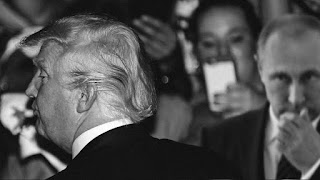Comey Wont Divulge Russian Connect.to Trump Nor for Hacking “It Might Interfere with Elections”
FBI Director James Comey argued against publicly disclosing the U.S. intelligence community's conclusion that Russia was behind hacks into U.S. political institutions, highly placed sources told NBC News on Monday.
A former senior law enforcement official with detailed knowledge of the matter said on condition of anonymity that Comey argued that disclosing that operatives based in Russia were behind the widespread hacking not only might interfere with the U.S. election but also could violate Justice Department guidelines.
Comey's opposition to the Russia report was first disclosed Monday by CNBC, which said Comey was concerned about being seen as interfering with next week's general election.
A senior FBI official, however, disputed that account, telling NBC News that Comey did raise concerns about publicly naming Russia but that those concerns were based on the potential impact on any related investigation, not the U.S. elections.
Hillary Clinton's presidential campaign and supporters in Congress have objected that Comey also shouldn't have disclosed last week that investigators had uncovered more emails that could be related to the investigation of Clinton's private email server.
Clinton campaign manager Robby Mook on Monday called Comey's actions irresponsible.
"It's impossible to view this as anything less than a blatant double standard," Mook said in a calls with reporters. " That Director Comey would show more discretion in a matter concerning a foreign state actor than one involving the Democratic nominee for president is nothing short of jaw dropping."
Law enforcement officials told NBC News over the weekend that the Justice Department strongly advised against disclosing the Clinton email developments because of the election, and the former senior law enforcement source said Monday that he was surprised by Comey's decision in the Clinton investigation.
As for the hacking, a senior U.S. intelligence official told NBC News that there was no disagreement over Russia's culpability. The concern, that official said, was about “naming and shaming” the Russians.
The FBI wasn't specifically mentioned in the statement that the Department of Homeland Security and the Office of the Director of National Intelligence issued Oct. 7, which said: "The U.S. Intelligence Community (USIC) is confident that the Russian Government directed the recent compromises of e-mails from U.S. persons and institutions, including from U.S. political organizations.
"These thefts and disclosures are intended to interfere with the U.S. election process," it said.
Officials noted that while the FBI was initially opposed to publicly naming Russia, the Bureau did ultimately sign on.
Official sources have told NBC News that the Russian cyber espionage campaign began more than a year ago and has been far more extensive than has been publicly disclosed, overwhelmingly targeting Democrats.
and


Comments